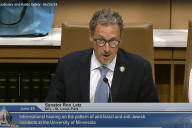You have /5 articles left.
Sign up for a free account or log in.

Istockphoto.com/Blue_Cutler
I just put the finishing touches on the syllabus for a class I’m teaching this fall. The textbook order went in on time, earning me a gold star from the provost, and I’m excited about greeting the students as part of expanded offerings at our satellite location.
We’ll deliver the course, Integrated Advertising and Public Relations Concepts, via a combination of in-person, synchronous and online methods. The hybrid delivery will surely be a test of my technical skills, but at the University of West Florida, we aim to meet student expectations for access and convenience.
I’ve tapped some local talent to assist me. The founder and president of a brand transformation and change management firm in our community will team teach the course with me. Her doctorate in organizational development and change, in addition to her 30-year experience in professional communications, will provide priceless real-world insights for the students in the course. We’ll be joined by a newly minted master’s degree graduate who will serve as a teaching assistant and provide contributions in the area of strategic communication, her specialty.
I have continued to teach for as long as I have been in university administration. There is no better place for the president to feel the pulse of the campus than in the classroom. It’s never easy to find the time, and the additional responsibility can make for a grueling workweek, but it’s worth it for the valuable insights gained from our students. Other contributors to Inside Higher Ed agree.
John Kroger, former president of Reed College, wrote in January that his decision not to teach while serving in administration was a mistake. He said, “If I had to do it again, I would teach at least one class or seminar every year.” He points out that teaching can help presidents do their “day job” more effectively and break down barriers between administrators and students. Most important, he notes that “teaching can help remind you, when times are tough or complicated, of the essential purpose and value of higher education.” I agree.
As president of Edinboro University of Pennsylvania, Julie Wollman urged fellow presidents to teach undergraduates, freshmen in particular. She designed a course to help counter the vulnerability freshmen feel and provide encouragement for success at a critical time in their college careers. In an essay for Inside Higher Ed, she wrote that teaching is “essential to remembering why we choose to work with college students to begin with, essential to respecting the depth and intensity of faculty work when you haven’t done it in a while, essential to appreciating the striving and the dreams of even our most aloof undergraduates, and essential to recognizing how important it is to have professors who simply but genuinely care about their students.”
I have never forgotten how much I love to teach. It keeps me in touch with my primary academic discipline, communication. For a few hours each week, teaching helps me relate to our students as Professor -- not President -- Saunders.
To others interested in teaching while president, I offer the following advice:
Check the hubris at the door. You’re not the rock star in the classroom you used to be. In my day, I was pretty good, but now I struggle to recapture the rhythm of effective teaching that comes with doing it regularly.
Be careful about talking shop. You are there to teach a course in your discipline, not discuss the frustrations of board management. Also, there is no better way to start a rumor wildfire than to offer some off-the-cuff quip about “needed changes” in Department X.
Consider team teaching. Having a partner who can help carry the weight or fill in should you be called away will be greatly appreciated as the semester progresses. I’m excited about my current partners, a seasoned industry professional and an aspiring professor.
Over the years, I have tried a number of different combinations. I have team taught with lead faculty, trying out new course strategies or simply adding depth to topics in which I have substantial expertise. I have been assigned a graduate student who served as teaching assistant and who would meet separately with students and provide tutorials to offset the load on my schedule. I have team taught with a staff member who met the teaching qualifications required by our accrediting body and whose duties for the university focused on topics relevant to the class. Once, I flew solo with the assistance of guest speakers and a staff member who could carry on when I was away.
For any of the above to work, good planning is essential. There’s little room for midcourse correction or letting the class set its own direction. My team and I discuss who will be grading what, and we talk at length about course outcomes and the caliber of the final project we hope the students will produce.
Teach courses that do not require intensive one-on-one time with the students. In case you have forgotten, you are hard to reach, and some courses are simply more labor intensive than others. I avoid courses that will probably require a great deal of tutorial time with the professor. Graduate courses often fall into that category, so I try to stay with introduction courses. Those courses often attract a student to a major and are ideal for senior faculty members like me to teach. Spare your students the frustration of battling through the phalanx of administrative assistants just to make an appointment. Set office hours for when you are available and keep them.
Listen to your students. Really listen. You’ll learn a great deal about them as well as about the strengths of your university. On the first day, my students and I work on norms for the class. In other words, I ask them to tell me how they wish to be treated by the professor and by each other. I always learn something new about student life from that discussion.
In addition, I ask them to send me a private email on anything they think I should know about them. For example, one student told me he lived with his grandmother and was responsible for her care. He identified times when he may be called away from class. That gave me an entirely different perspective on the distinct challenges he faced and helped me work with him more effectively.
Consult with other faculty members in your department. They are in the trenches every day and you’re not. They can help you improve your game, and you might win a few points for asking. My faculty colleagues provide invaluable information about best practices for teaching specific courses. They tell me about trends in student performance and some of the more pesky administrative details of course management.
My final piece of advice, embarrassingly learned the hard way? Get your grades in on time!








